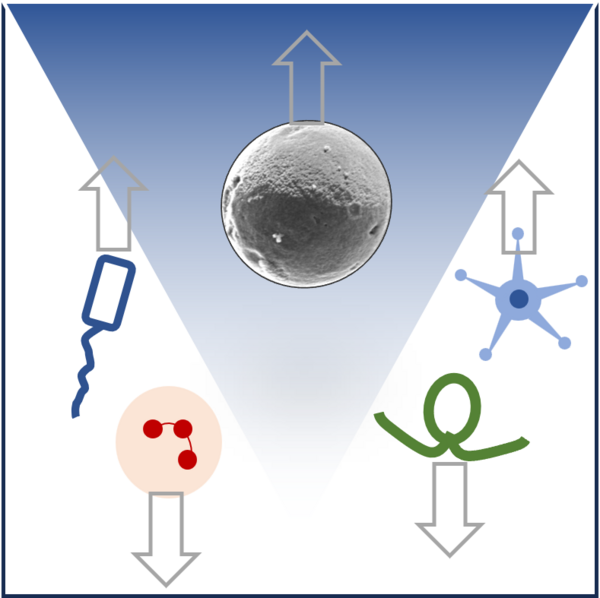Robert Insall
(University College London, UK)
Juliane Simmchen
(University of Strathclyde, UK)

Taking a closer look at natural survival skills of most living creatures on earth, from bacteria to humans, one of the common traits is migration to search for food. Understanding the behaviour of such microsystems requires a multidisciplinary approach, with biology, physics and chemistry being closely interlinked.
This workshop focuses on biological and artificial systems migrating in diffusion-based gradients: Bacteria use chemical gradients to determine the location of food sources. The motility mechanisms they employ rely on a temporal samplingmechanism to determine the direction of the gradient. However, the mechanisms used by eukaryotes and multicellular organisms are much less understood. Due to the large variety of eukaryotic cells, the mechanisms can differ strongly.
This workshop aims at exploring common traits among these different organisms and compare them to artificial systems in order to understand physical influences such as flow and phoretic forces.
Given the important role chemotaxis plays in many large-scale biological processes, such as wound healing, neuronal patterning, fertilization, embryonal development and cancer metastasis, we aim at bringing all these different studies together, and investigate the physical groundwork.
Specific questions that will arise from the discussions and interdisciplinary exposure:
We plan an on-site workshop. Talks and posters will exclusively be presented on-site.
Judith Armitage (UK)
Giuseppe Battaglia (UK)
Thierry Emonet (US)
Robert Endres (UK)
Benjamin Friedrich (DE)
Ramin Golestanian (DE)
Richa Karmakar (IN)
Christina Kurzthaler (DE)
Hans Othmer (US)
Ignacio Pagonabarraga (ES)
Kevin John Painter (IT)
Wouter-Jan Rappel (US)
Christina Roggatz (DE)
Jens-Uwe Sommer (DE)
Kirsty Wan (UK)
Gilad Yossifon (IL)

